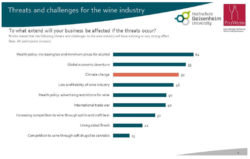PROWEIN BUSINESS REPORT 2019
THE MOST IMPORTANT ISSUES

Current Challenges

Effects along supply chain

Effects on production

Vailability, prices and qualities

Effects on consumer demands

Importance of sustainability


